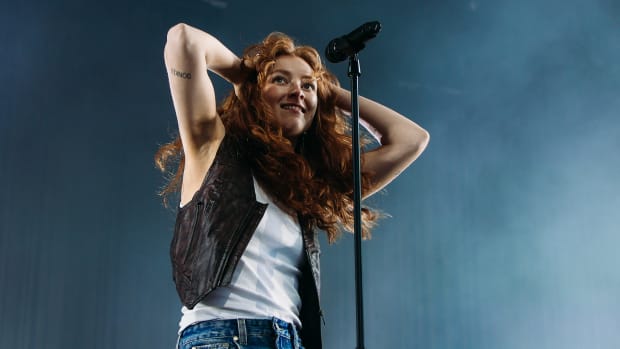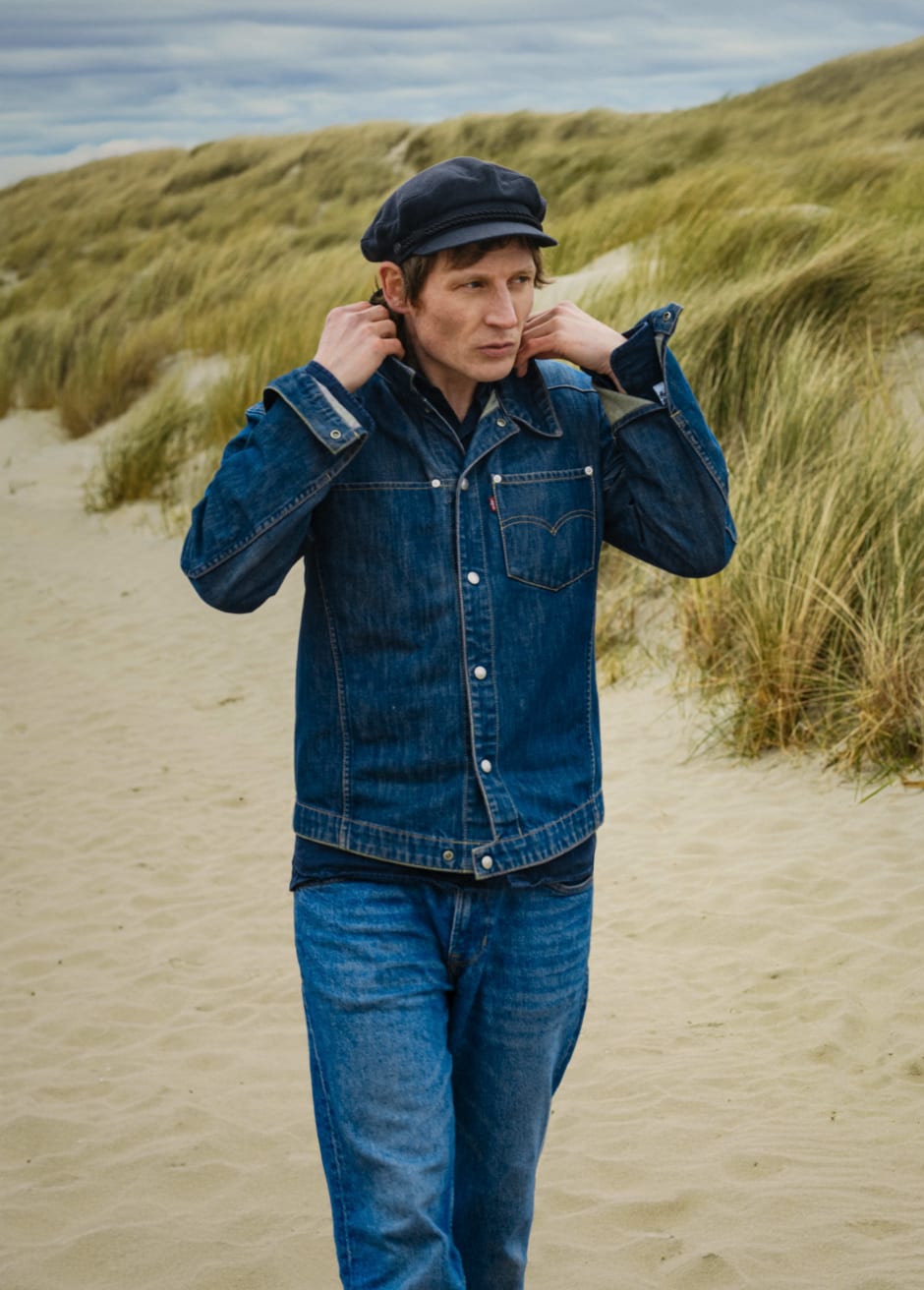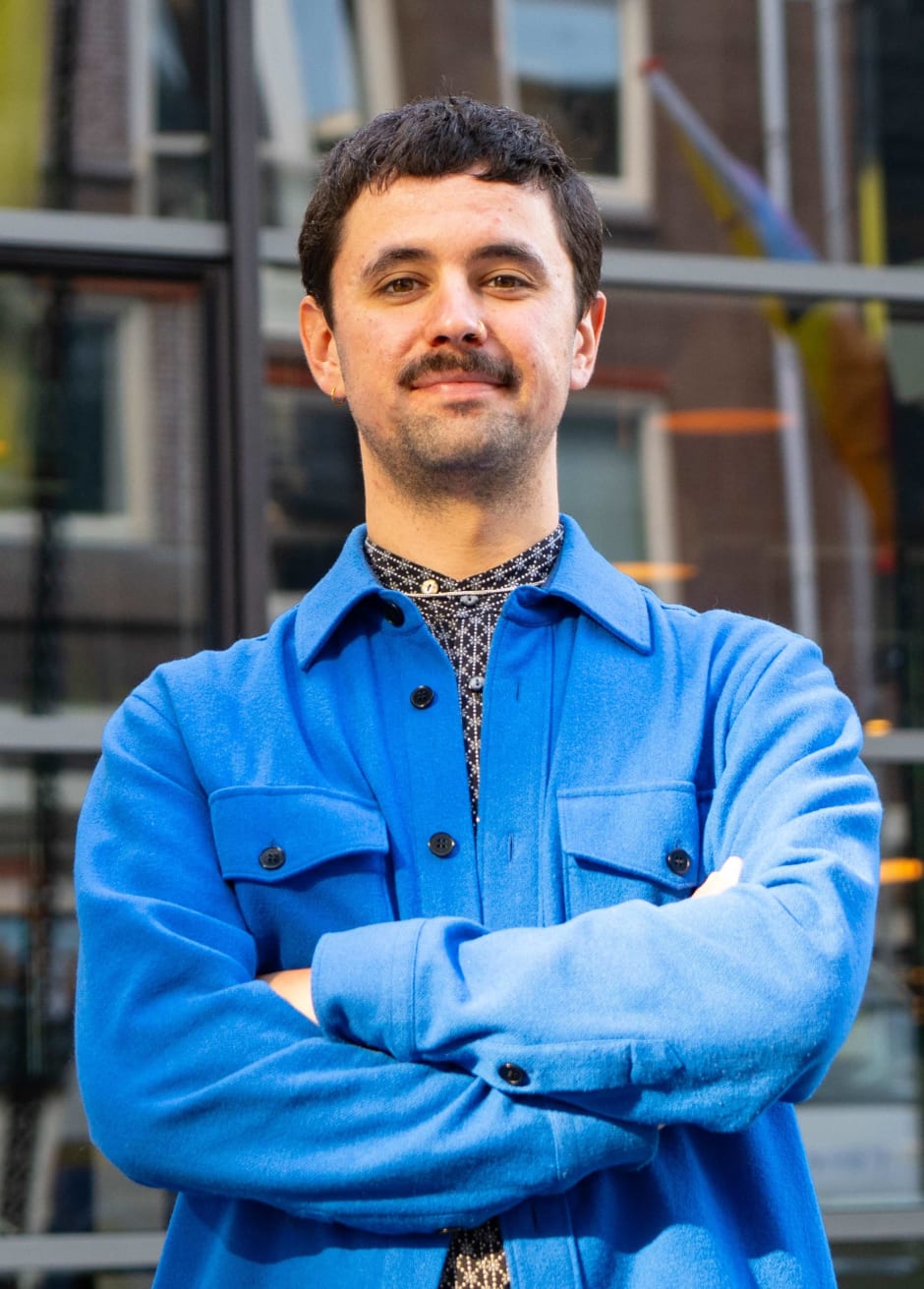
Dutch music more popular than ever: “Phenomenon Froukje was unthinkable 15 years ago”
The end of the year is approaching and the Spotify Wrapped lists do not lie: The Dutch have once again listened to more music in Dutch this year. How to explain the return of Dutch music? Folia asked singer-songwriter Lucky Fonz III and music scholar Sydney Schelvis. “Hip people didn’t used to sing Dutch.”
Dutch singer Joost Klein was the highest Dutch entrant in the Top2000 last week, finishing at spot 139. In recent years, the share of Dutch-language music in the Top2000, the 2,000 most popular songs chosen upon vote, has been rising in crescendo. And of the Top10 most streamed songs on Spotify, as many as half are Dutch.
Otto Wichers, singer under the stage name Lucky Fonz III and UvA alumnus, sees it not so much as a rise but rather as a return of Dutch-language music. “Dutch music has become the norm again,” he says, “just as it was before the 1960s.”

That was unthinkable in 2010, when Otto Wichers released his first Dutch-language song, Ik heb een meisje (I have a girl). Back then, the Dutch music landscape looked very different. Dutch-language music was being made but mainly in the form of Frans Bauer-like music, commercial pop music like Marco Borsato, hip-hop or cabaret. Wichers: “Alternative Dutch-language music was only incidental, like singers Spinvis and Roosbeef, but you couldn’t yet call that a movement.”
After graduating in English language and literature from the UvA, it was therefore only logical that Lucky Fonz III toured the world with an English-language repertoire. “Singing in Dutch was considered something eccentric for an international singer-songwriter,” he says on the phone. “People thought it was weird, it was far from cool. Such a phenomenon as Froukje and S10 was unthinkable in the Netherlands 15 years ago.”
Dutch music became cool
This has changed in the past ten or fifteen years, UvA music scholar Sydney Schelvis also observes. “Before that, Dutch music lacked persuasiveness; it was simply not taken seriously.”
The Dutch hip-hop artists of the 1990s helped pave the way, says Wichers, with Dutch rappers such as Extince, Def Rhymz and the group Osdorp Posse. “I remember a Dutch-language hip-hop act in Nijmegen in the 1990s. A Nijmegen act who rapped in Dutch that they were from Nijmegen-East. While at the time, rock bands from Nijmegen-East were actually pretending to be from London or New York.”

The corona pandemic gave Dutch-language music another boom, says Schelvis, when artists such as Froukje and S10 stormed the charts. Why, is harder to explain, according to Schelvis. “Of course, it was a time when the Netherlands - despite social media - was turning inwards and sticked to the news. Froukje’s lyrics were about loneliness and the state of the world. And then also in Dutch, which made it all the more resonant.”
Freed from the yoke
That’s what Dutch music excels at, Wichers also noticed when he first started singing in Dutch. “I felt that the Dutch audience reacted much more directly to the Dutch lyrics. I also notice in the fan culture that Dutch people value my Dutch lyrics more. Translating takes energy and that energy is retained when you sing in your own language.”
He also says the level of Dutch lyrics has gone up in recent years. “It used to be mainly songs with flatter lyrics, while artists like Eefje de Visser, Froukje and S10 often write more profound texts about more difficult themes.”
According to Schelvis, Dutch music has finally got its own sound too. That sound has something uncomfortable, as Joost Klein and Froukje show, but also a Dutch directness. “Fifteen years ago, English lyrics could never be poetic enough, but Dutch lyrics had to be direct. I can still see that in the texts.”
For the first time, that Dutch sound is not a derivative of English and American acts. Schelvis: “Finally, we have freed ourselves from that yoke and can show our own sound, based on our Dutch pop tradition.” Otto Wichers also welcomes the development of Dutch music. “What I like is that now everything music genre can now be in Dutch, rough hip-hop, cool pop music and alternative music.”
Cycling to the Milky Way
For now, interest in Dutch-language music will only increase. Schelvis: “Now that we can finally take Dutch music seriously, it’s also much easier for Dutch festivals, pop venues and radio stations. Froukje could just cycle to the Melkweg (club in Amsterdam red.) last year.”
Wichers also does not expect a large-scale return to English music in the Netherlands. “I myself always want to know what a song is about. If I go to an Italian opera, I also want to read the translation. It’s just what’s so wonderful about songs, that combination between lyrics, meaning and melody.”

